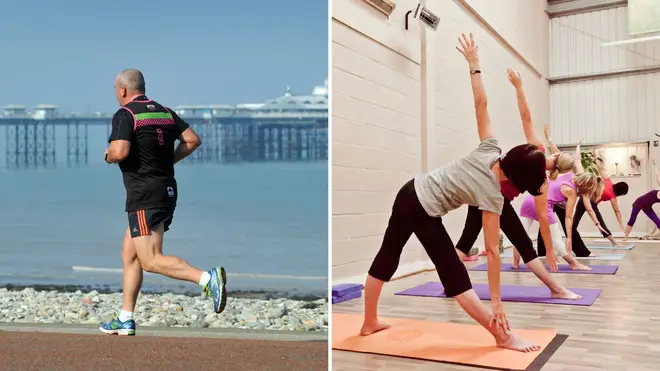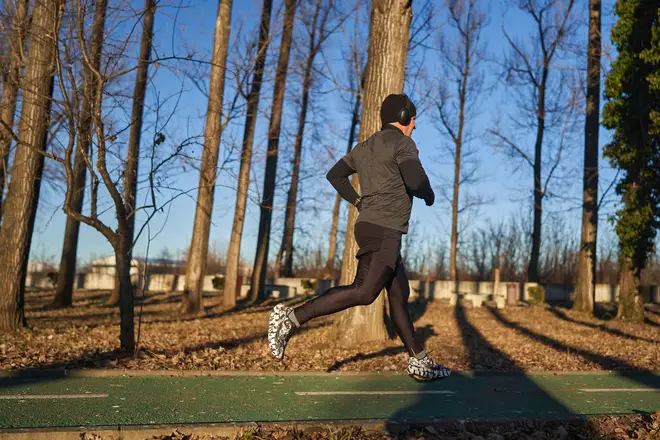
Rachel Johnson 7pm - 10pm
15 February 2024, 06:59 | Updated: 15 February 2024, 07:01

Exercise should be used as a ‘core treatment’ for depression, a new study has found.
Walking, jogging, yoga and strength training were found to be the most effective types of exercises for those living with depression.
More than 14,000 people from various countries with major depressive disorder were involved across 218 clinical trials, researchers said.
They ranked different forms of exercise based on how effective they were at treating the condition compared to treatments already available.
It found that exercise appeared more effective than anti-depressants for helping those with depression, and when the two were combined it improved the effect of the drugs.
Taking just anti-depressants improved a person’s symptoms by 26%, while the study found that walking or jogging improved symptoms by 63%.
The study, published in the British Medical Journal, said: “Exercise is an effective treatment for depression, with walking or jogging, yoga and strength training more effective than other exercises, particularly when intense.
"Yoga and strength training were well tolerated compared with other treatments."
While more vigorous exercises were considered to be the most effective, low-intensity exercises such as yoga and walking were also found to have an impact.

Researchers at the University of Queensland, Australia also found that yoga was as effective as cognitive behavioural therapy (CBT) - both improving symptoms by around 55%.
Professor Juan Angel Bellon from the University of Malaga, Spain, wrote: "Primary care clinicians can now recommend exercise, psychotherapy or anti-depressants as standalone alternatives for adults with mild or moderate depression.
"The final choice depends on patient preference and other considerations, including any barriers to access.
"For adults with severe or treatment-resistant depression, the available evidence currently favours combined psychological and drug treatment."
Dr Paul Keedwell, consultant psychiatrist and fellow of the Royal College of Psychiatrists, said: “Many depressed individuals find exercise very challenging. But, taken together, the evidence supports exercise being an important part of a package of treatments for depression, and it will help with physical health too."
But Professor Michael Bloomfield, consultant psychiatrist at UCL, said that while the paper adds to existing evidence about the benefits of exercise to depression, it's not possible to say yet if "exercise on its own is better than existing treatments including medication and psychological therapies".
"When people experience more severe forms of depression simply offering exercise may not be completely helpful, for example, when someone is struggling to get out of bed let alone get to the gym.
"Depression is often caused by a range of factors and it is more helpful to think about the pros and cons of a range of treatments including medication, talking therapy and exercise, that can be offered to patients, rather than an unhelpful division of medication vs. talking therapy vs. exercise."